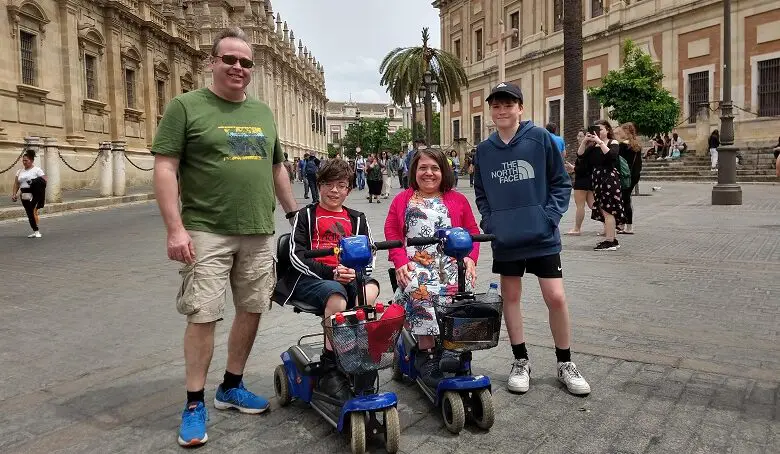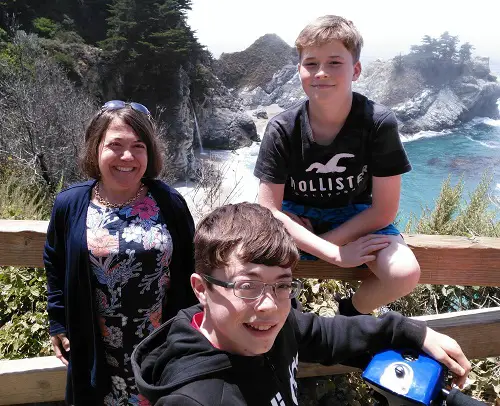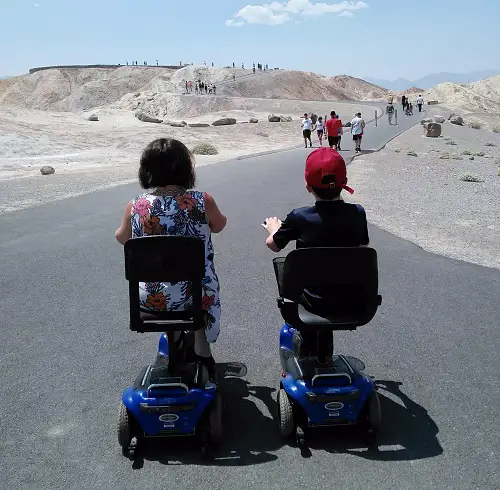
The advantages and disadvantages of my child having inherited my disability
Emma West agonised about being a mother, in case she passed on her rare condition, Kniest Syndrome. She decided to go ahead. Here, Emma explains what happened – and how she has happily dealt with the ‘consequences’.
One of the hardest decisions my husband, Mike, and I have ever had to make was whether or not to have a baby. Establishing that it was physically possible was relatively easy. I managed to track down two mothers with the same, very rare, disability as me.
However, we were still faced with the bigger dilemma of deciding whether or not we would go ahead, given that there was a 50:50 chance of me passing on my disability to my child.
My disability
My disability, Kniest Syndrome, is very rare. It means that I’m short in stature (only 4ft tall), and all of my joints are enlarged and deformed, so my mobility is impaired.
On the plus side, I’ve had a great life. I went to a mainstream school, got a psychology degree, met my amazing husband, travelled the world, and have had a satisfying career.
I am currently working as a counsellor, a Disability Qualified Member for HM Courts and Tribunals Service and a writer.
However, it isn’t always a bed of roses. I have pain, face discrimination, am often stared at and deal with logistical nightmares. These are all part of my daily life.
In the end, we decided to try for children because, on balance, the pros out-weighed the cons. We also feel that nothing in life is guaranteed.
So, we went ahead and we now have two gorgeous boys – Archie, who is 15, and Ben aged 13. Archie inherited my disability, but Ben didn’t.

Looking back at our decision
As Archie nears 16, it’s interesting to reflect on whether our best or worst fears have been realised.
First and foremost, in our family unit, being disabled is just as natural as not being disabled. After all, we have a 50:50 split! It feels as if there is a sort of balance in this and, over the years, we’ve developed a supportive family unit that I feel helps us all weather the storms.
Also, any fears I had about physically managing as a disabled parent didn’t really materialise. It helped that my husband is a creative, engineering-minded type who built various contraptions that enabled me to transport the boys around when they were really young.
It turned out that the only thing I really couldn’t do was bathing – so my husband just did it, something which we saw as a natural division of labour as parents.
Advantages of being a disabled parent
One of the advantages of being a disabled parent of a child with the same disability is that I’ve already worked out lots of ways of doing things – driving, cooking, bathing and so on. These are all done with the use of various adaptations and gadgets I have discovered over the years.
A non-disabled parent would have a lot more working-out to do. They could also end up being inadvertently over-protective by doing things for the child because it’s not easy finding solutions. They may not even realise that certain activities are possible.
Having a disabled parent also means that my son is more accepting of his limitations. I sometimes feel guilty when I see that Archie can’t do something he’d like to, such as go on a long bike ride, hop on a bus, or go paintballing.
However, Archie’s okay with this. “I don’t miss not being able to do those things,” he tells me, “because I’ve never been able to do them.”
His attitude focuses on what he can do, which I think is helped by the fact that I am disabled. He says: “You show me what’s possible. You’ve already worked out how to do things, such as using a mobility scooter to get around on.”
And he’s right – it took me more than two decades to realise that using a mobility scooter would revolutionise my life, while Archie has been using one since he was five (initially, he used a cut-down version, thanks to Mike!).

There are disadvantages…
On the flip side, there is the risk of over-identification – just because we have the same disability doesn’t mean that we are exactly the same.
Indeed, Kniest is quite a variable condition and whilst I had a lot of problems with my knees in my teenage years, Archie has more problems with his feet.
Using a scooter seems to have removed some of the struggles and pain I endured through walking. But does this mean he is missing out on building the resilience, which I cultivated by having difficult experiences? Is it really no pain, no gain?
In some ways, I know I’m less likely to push Archie because I know what it’s like – I’ve been there, got the t-shirt. I feel that if I can save Archie from enduring some physical or psychological pain, then that can’t be a bad thing.
This is mainly because I know I can’t eliminate it all, so he will inevitably build his own resilience through his own experiences.
He’s already showing signs of being a bloody-minded individual (I can’t think where he’s got that from…). Part of that is being a teenager, I’m sure, but it’s a trait that could stand him in good stead for the future…
By Emma West
More on Disability Horizons…